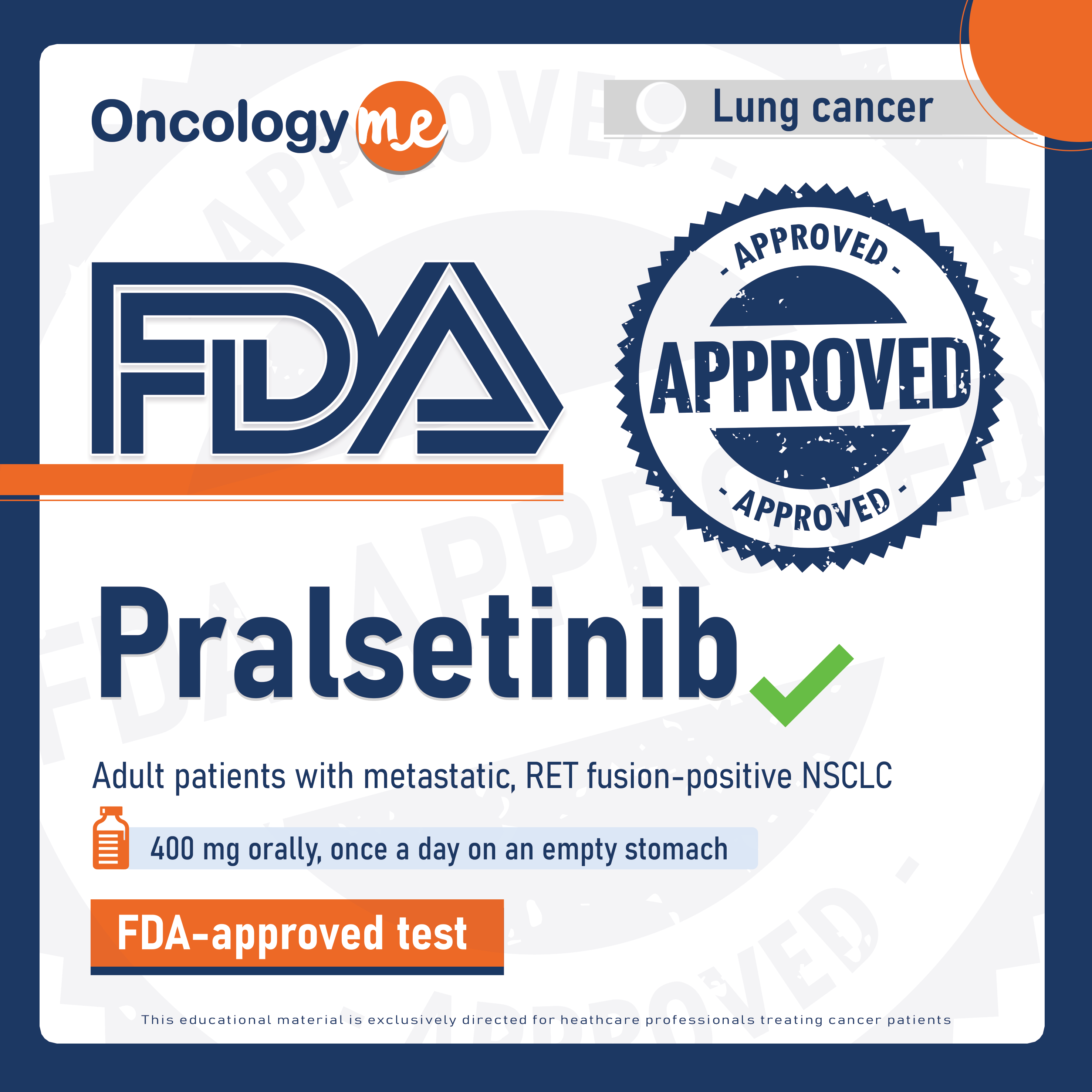RET fusions are present in 1%-2% of non-small-cell lung cancer (NSCLC). Pralsetinib, a highly potent, oral, CNS-penetrant, selective RET inhibitor.
Previously, pralsetinib received accelerated approval for this indication on September 4, 2020, based on initial results of 114 patients enrolled in the ARROW trial, a multicenter, open-label, multi-cohort, Phase 1/2 trial. The conversion to regular approval was based on additional data from 123 patients and 25 months of follow-up to evaluate the long-term effectiveness.
Efficacy was demonstrated in a total of 237 patients with locally advanced or metastatic RET fusion-positive NSCLC. Patients received pralsetinib until disease progression or unacceptable toxicity.
The primary efficacy measures were ORR and DOR as determined by a Blinded Independent Review Committee (BIRC). Among 107 treatment-naïve patients, ORR was 78% with a median DOR of 13.4 months. Among 130 patients previously treated with platinum-based chemotherapy, ORR was 63% with a median DOR of 38.8 months.
Pralsetinib was generally well tolerated and there were no new safety signals. The most common side effects observed (occurring in at least 25% of patients) included musculoskeletal pain, constipation, hypertension, diarrhea, fatigue, edema, fever, and cough. The most common grade 3-4 treatment-related adverse events (TRAEs) were neutropenia, hypertension, increased blood creatine phosphokinase, and lymphopenia.

.png)